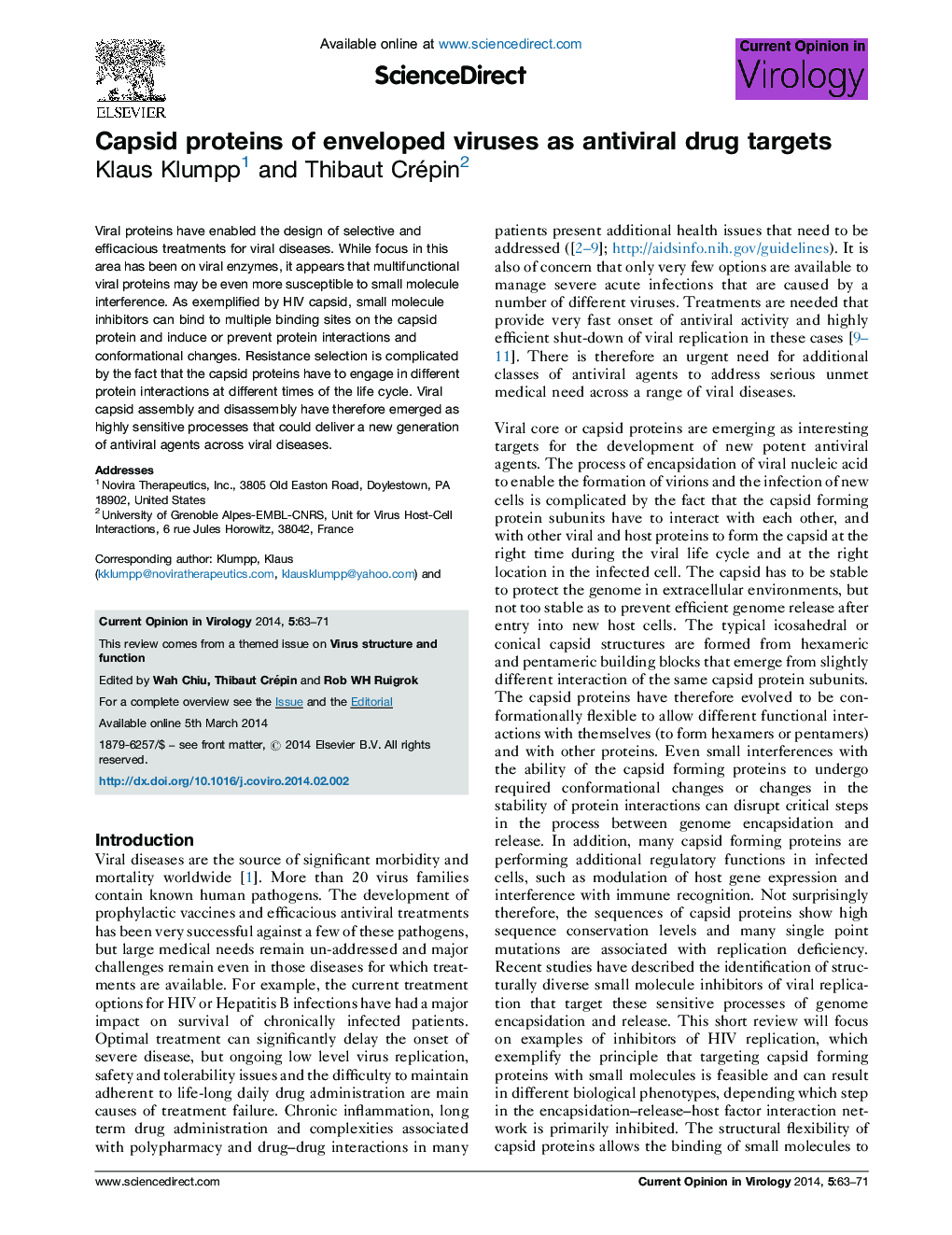| Article ID | Journal | Published Year | Pages | File Type |
|---|---|---|---|---|
| 5806823 | Current Opinion in Virology | 2014 | 9 Pages |
â¢Capsid proteins of enveloped viruses engage in multiple different protein-protein interactions.â¢The capsid assembly and disassembly processes are sensitive to inhibition by small molecules.â¢Small molecules can interfere with capsid-host protein interactions.â¢Multiple compound binding sites can be occupied simultaneously on capsid proteins.â¢The majority of amino acid substitutions on HIV capsid protein result in replication deficiency.
Viral proteins have enabled the design of selective and efficacious treatments for viral diseases. While focus in this area has been on viral enzymes, it appears that multifunctional viral proteins may be even more susceptible to small molecule interference. As exemplified by HIV capsid, small molecule inhibitors can bind to multiple binding sites on the capsid protein and induce or prevent protein interactions and conformational changes. Resistance selection is complicated by the fact that the capsid proteins have to engage in different protein interactions at different times of the life cycle. Viral capsid assembly and disassembly have therefore emerged as highly sensitive processes that could deliver a new generation of antiviral agents across viral diseases.
